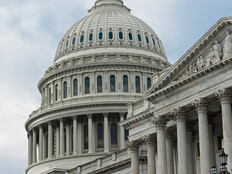In Boston, Open Government Means Open Data
Boston residents don’t have to search far for data about crime incident reports, health inspections of licensed food establishments or closed pothole cases.
Those data sets — and more — are compiled on CityofBoston.gov, and it appears this is just the beginning. In April, Mayor Martin Walsh issued an executive order that requires the city’s chief information officer to issue a City of Boston Open Data Policy, along with a Protected Data Policy for protected records, such as health and some educational data.
In the executive order, Walsh instructs all city departments to publish their public record data set in line with API, format and other accessibility guidelines that will be included in a future open data policy.
Boston is among a growing number of cities, counties and states that are developing open data policies, according to the Sunlight Foundation, a nonpartisan nonprofit that advocates for open government. In its blog post, the foundation also gives a rundown of the mayor’s executive order and what an open data policy could mean for Boston.
Although the city maintains a data portal to make certain data sets accessible to the public, there is no formal requirement to make data available beyond federal Freedom of Information Act obligations,” according to Michelle Wu, Boston City Councilor At-Large. “A municipal open data ordinance would mandate that agencies and departments across the board contribute to these publicly available data sets in accordance with technical standards that ensure privacy and public safety.”
As of April, Wu noted that Boston had 46 data sets available on its portal, compared with New York City, which had more than 1,100 at data.cityofnewyork.us. That site features a data visualization map that was created using the New York City Police Department’s motor vehicle collision data. The map shows vehicle collisions aggregated by time of day.
Wu introduced an open data ordinance in April regarding open data accessibility, but the city council has not yet voted on the measure. The committee on Government Operations held a public hearing on May 8 to discuss the ordinance and solicit feedback from the public and city agencies.
The ordinance would be used to enhance the transparency of government programs and proceedings by requiring city departments to release public data sets in a timely and effective manner. If approved, agencies would have one year to publish data on the city’s portal.
The ordinance also would direct Boston’s CIO to work with the city’s chief procurement officer to develop contract provisions that promote open data policies in procurement.
One issue that is likely to raise concerns is privacy. Both Wu and Walsh call for keeping protected data secure, properly tagged and off of public websites. The National Association of State Chief Information Officers recommends that executive and program staff, data coordinators, FOIA officers, data stewards/IT, security and privacy officers, public information officers and legal counsel help identify and vet potential data sets for public release.
Open data enthusiasts will be watching to see how well Boston’s new policy and initiatives involve citizens and explore what data interests them as well as the benefits that can come from publishing public data.









